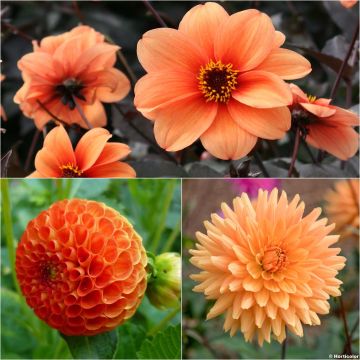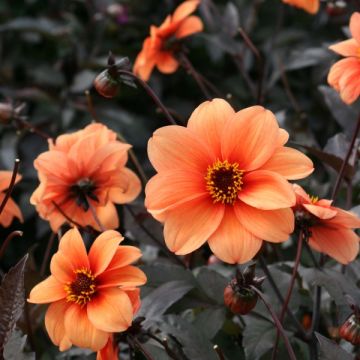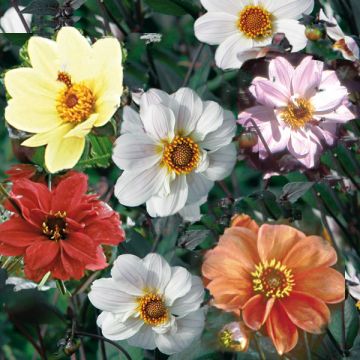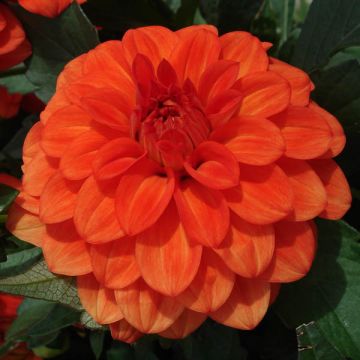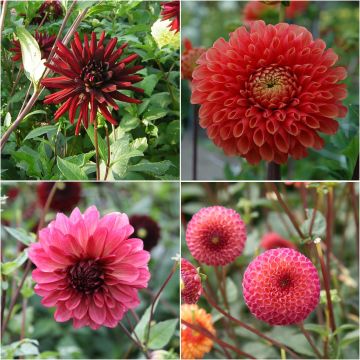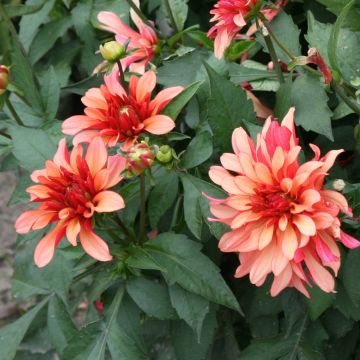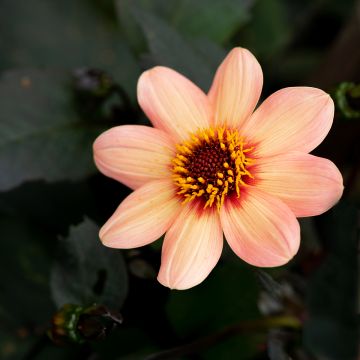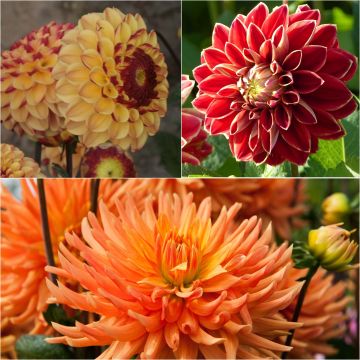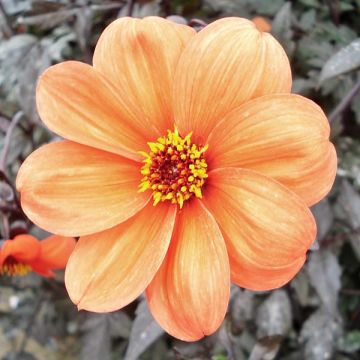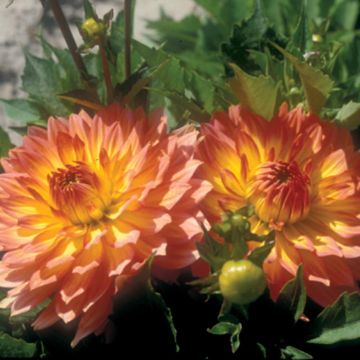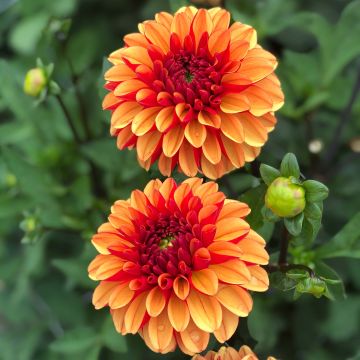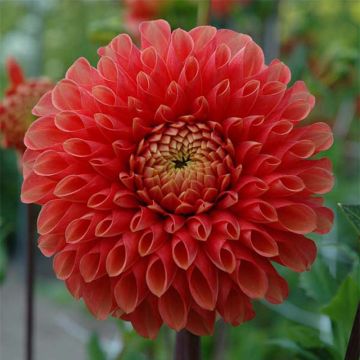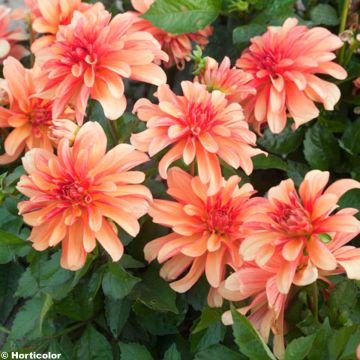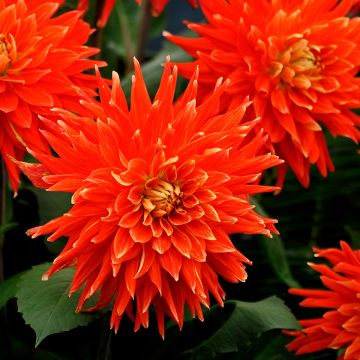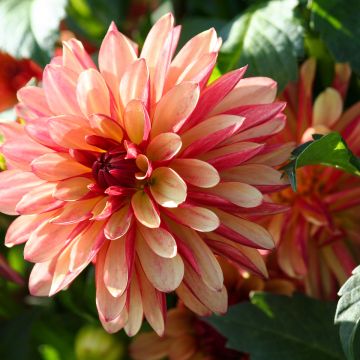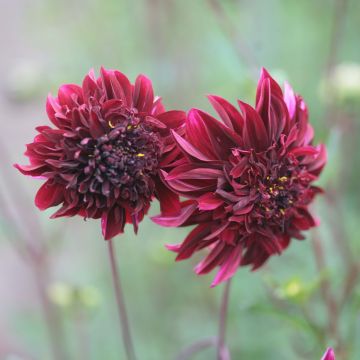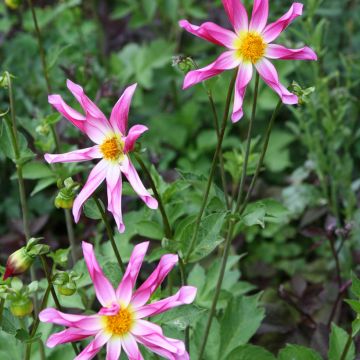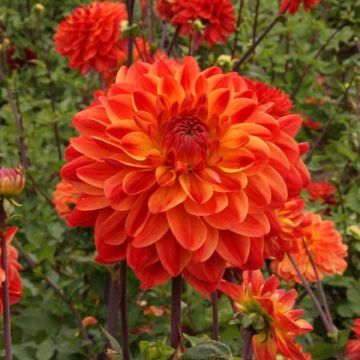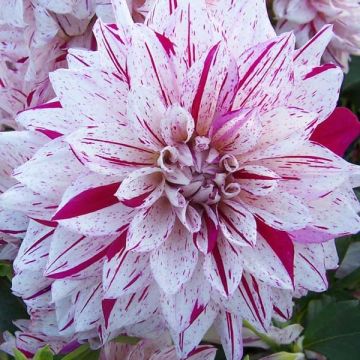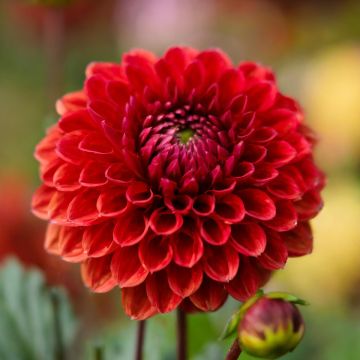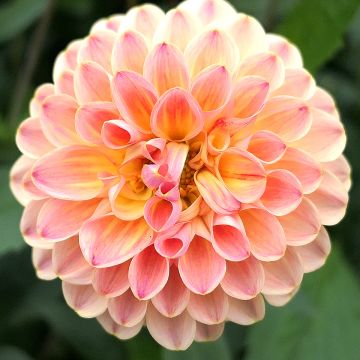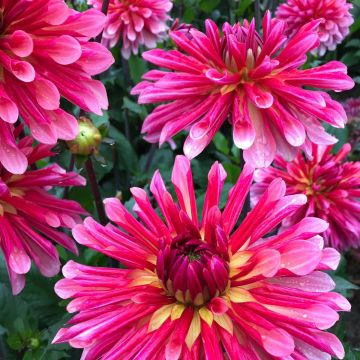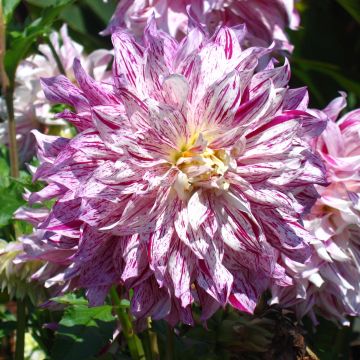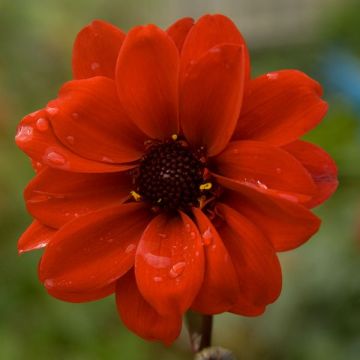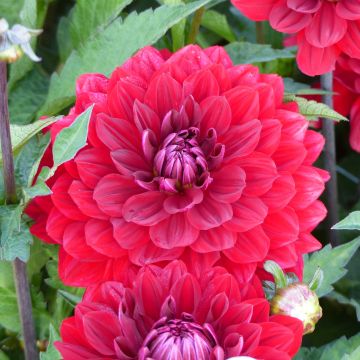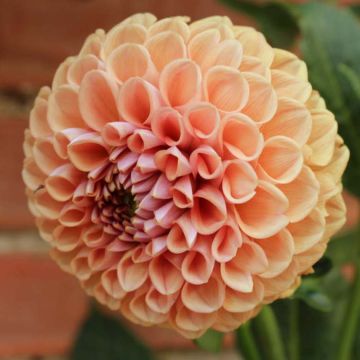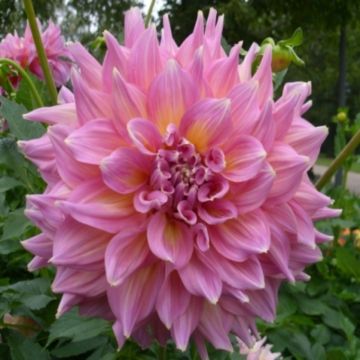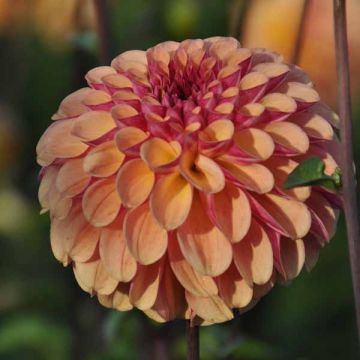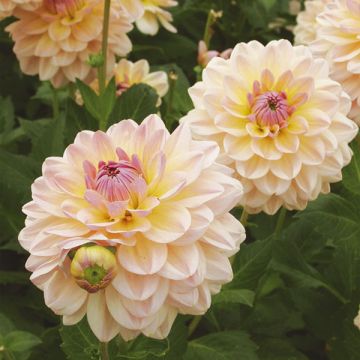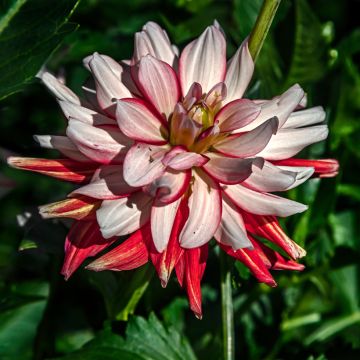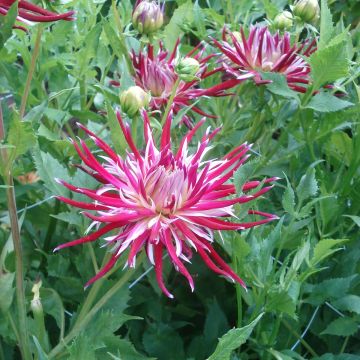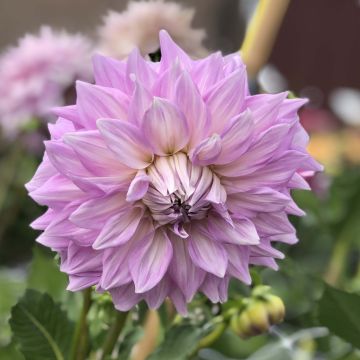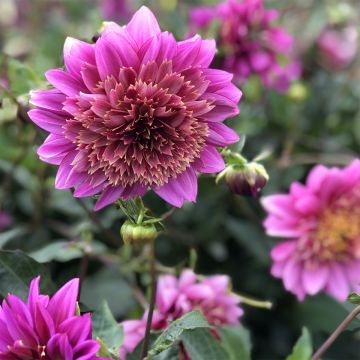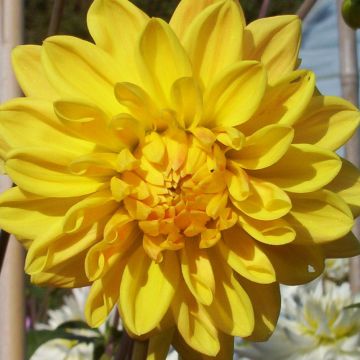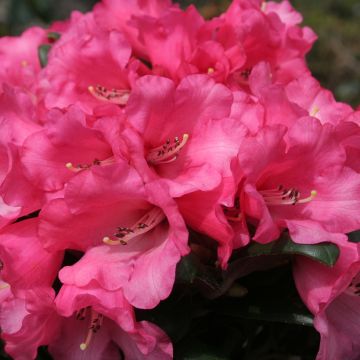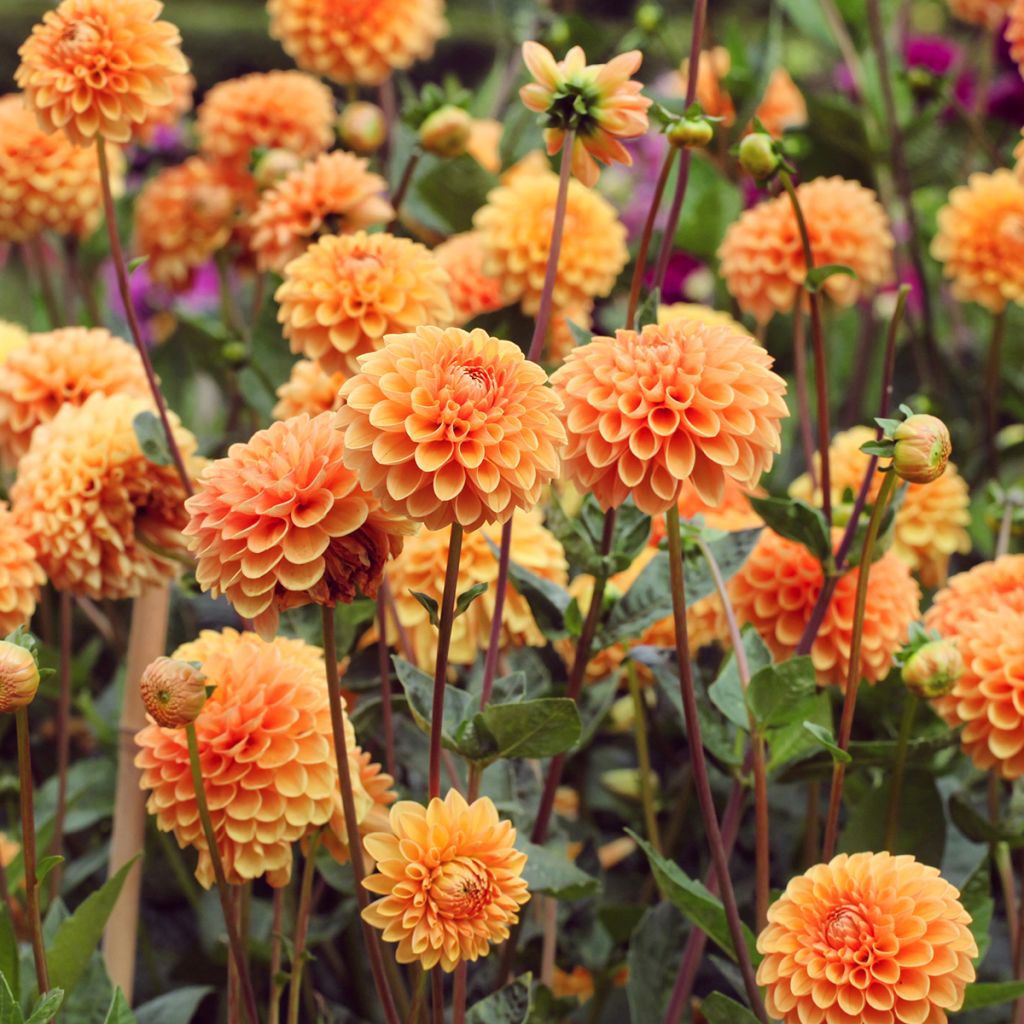

Dahlia Sylvia
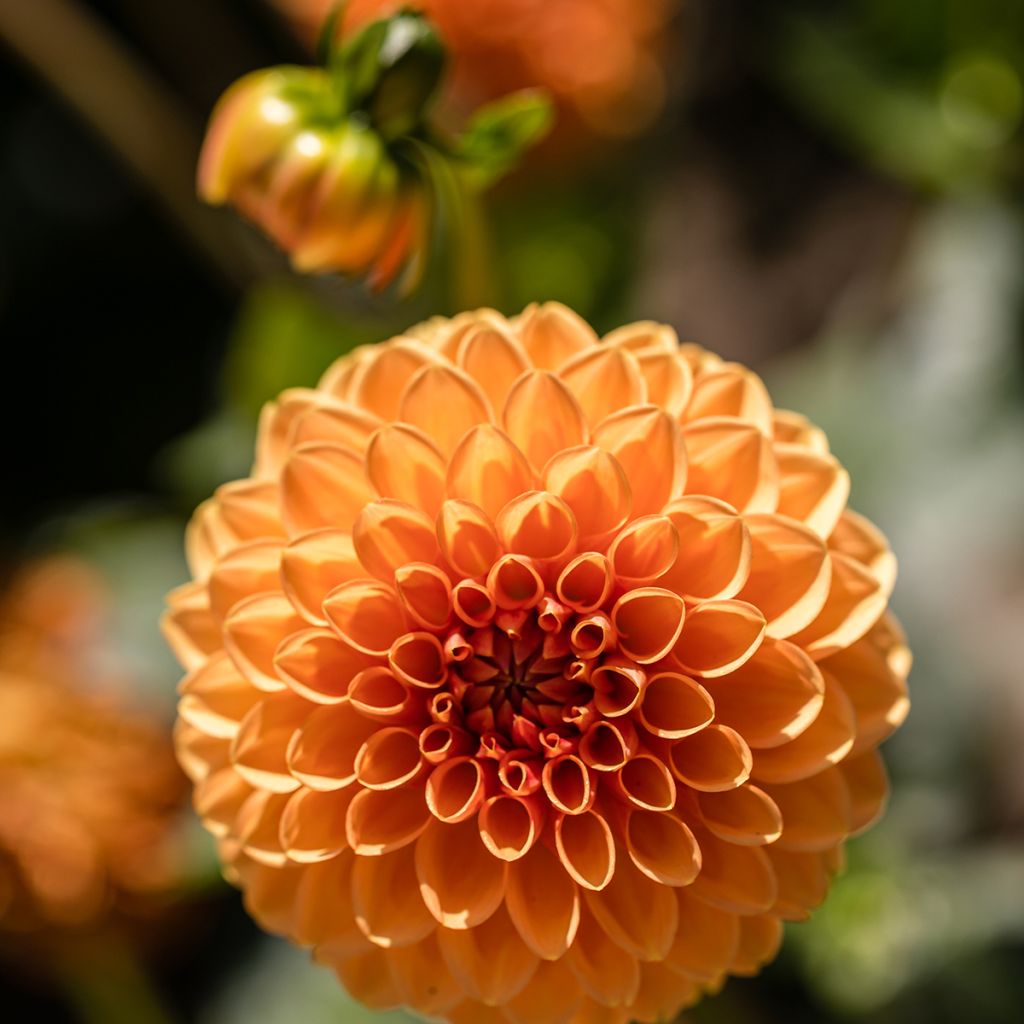

Dahlia Sylvia
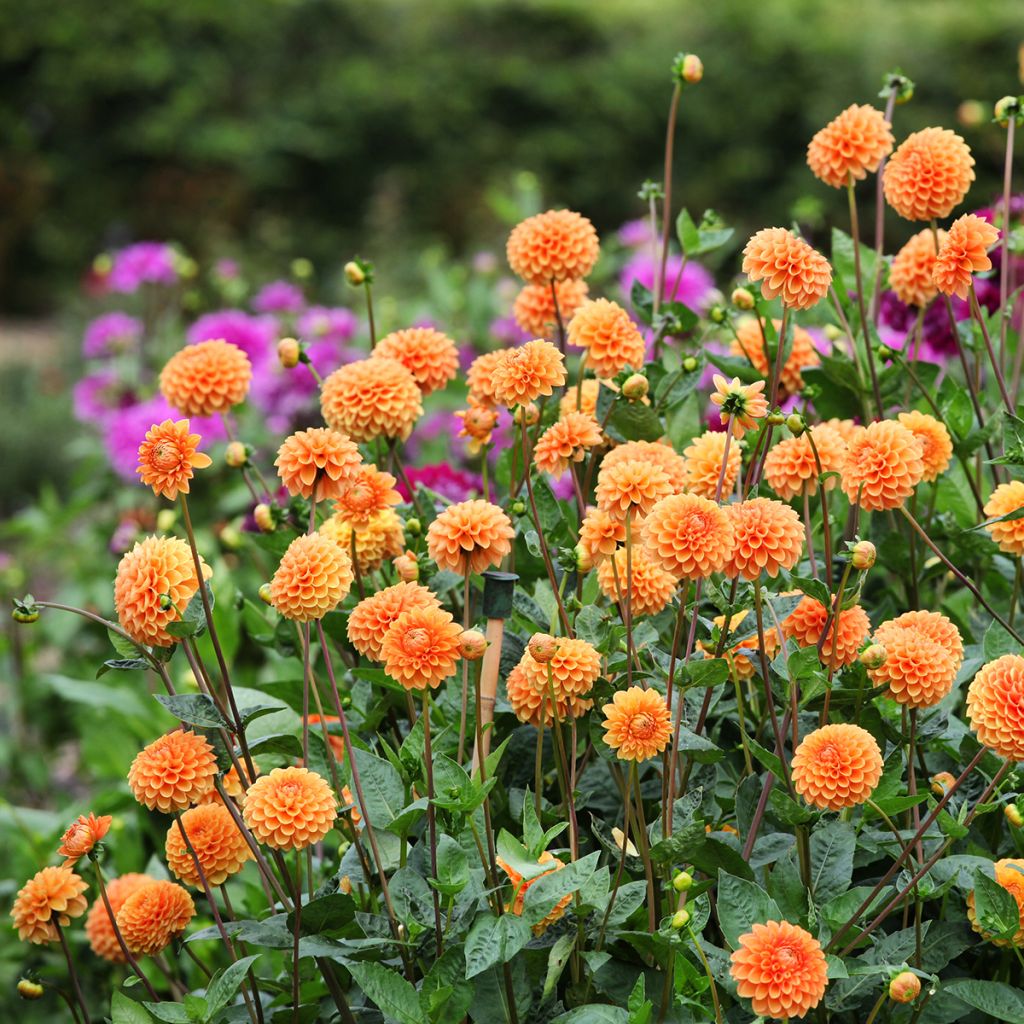

Dahlia Sylvia
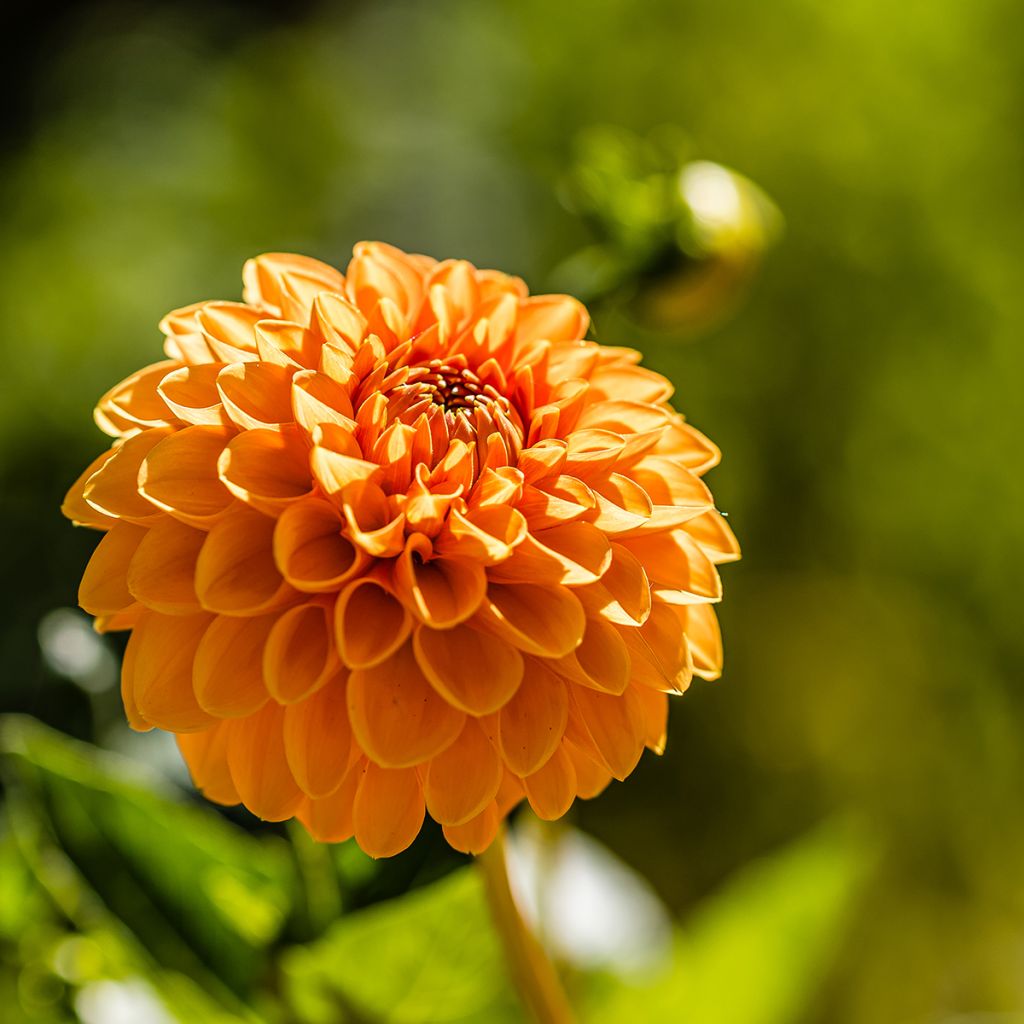

Dahlia Sylvia
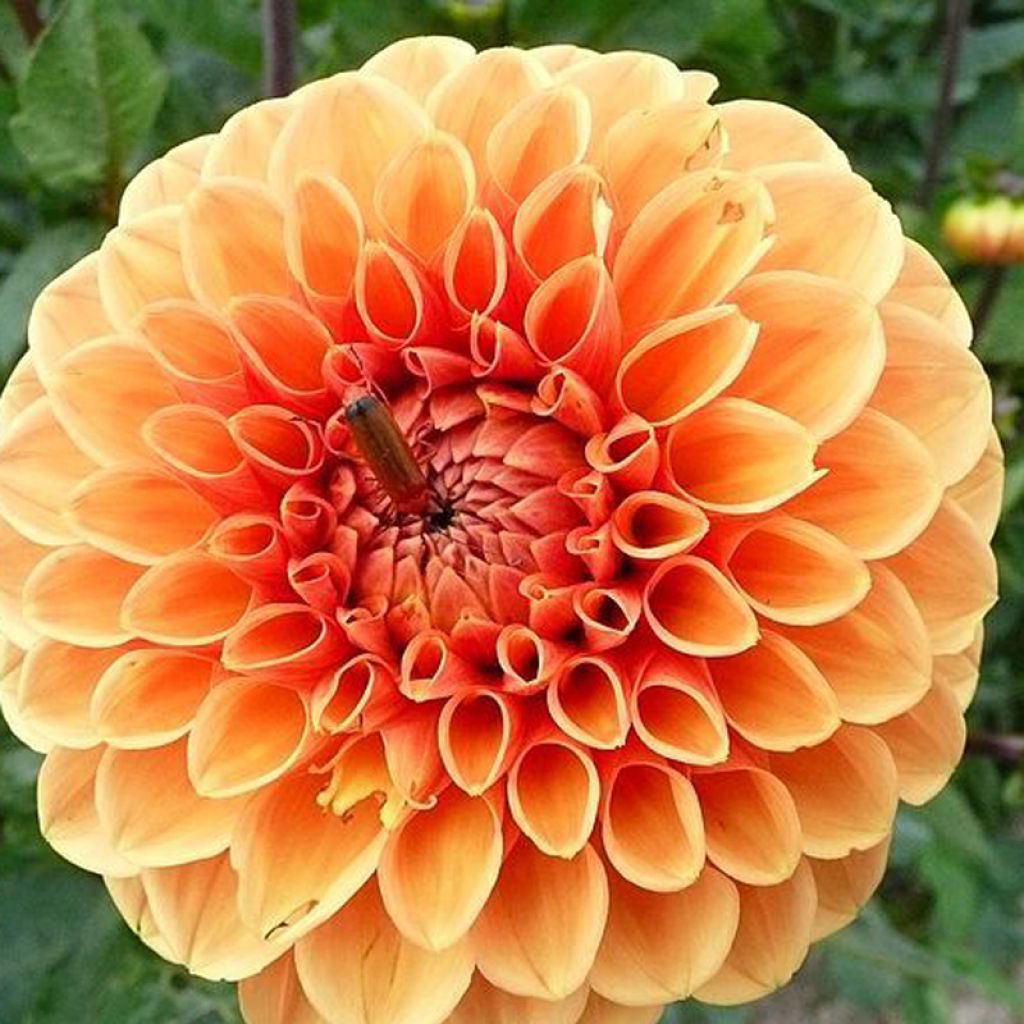

Dahlia Sylvia
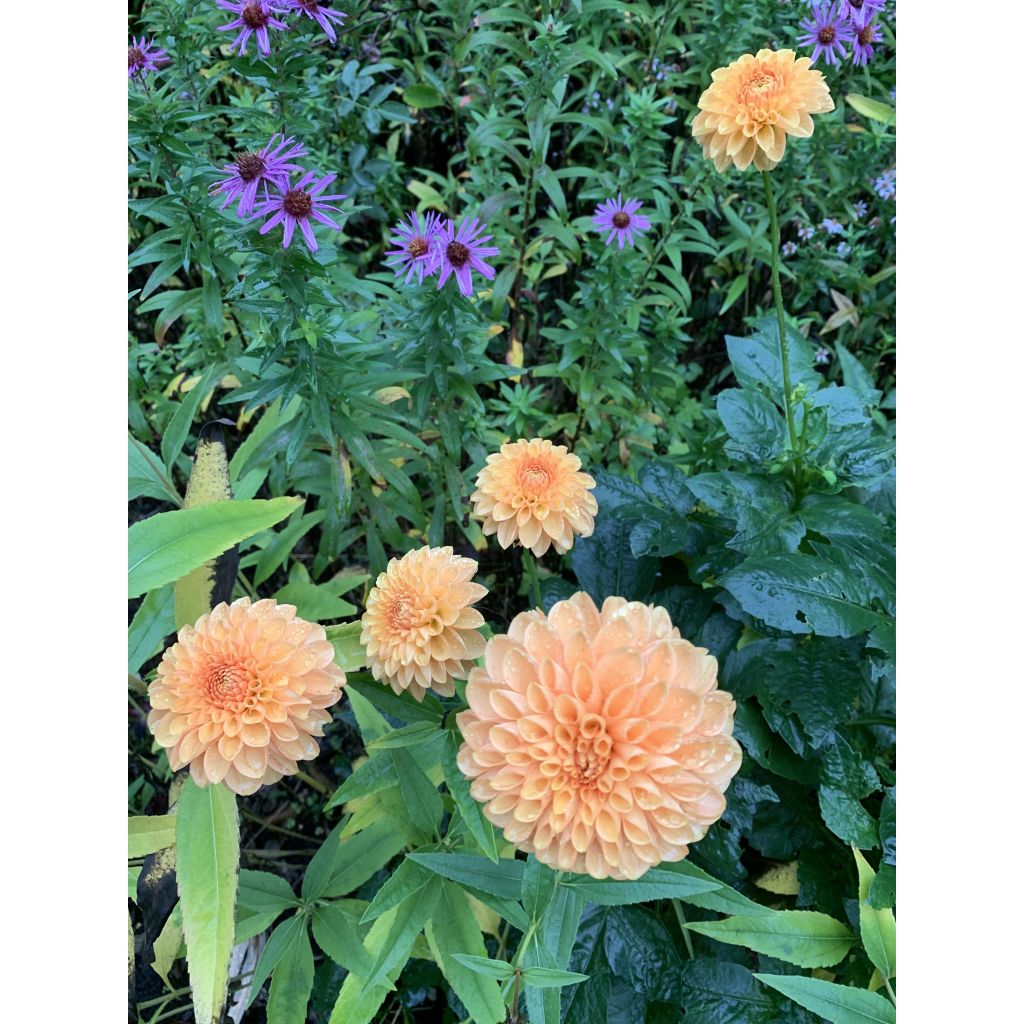

Dahlia Sylvia
Dahlia Sylvia
Dahlia Sylvia
Dahlia
This is the only dahlia that bloomed this summer, for all the others it's postponed until 2023.
Francisca, 10/10/2022
Why not try an alternative variety in stock?
View all →This plant carries a 6 months recovery warranty
More information
We guarantee the quality of our plants for a full growing cycle, and will replace at our expense any plant that fails to recover under normal climatic and planting conditions.
From €5.90 for pickup delivery and €6.90 for home delivery
Express home delivery from €8.90.
Does this plant fit my garden?
Set up your Plantfit profile →
Description
The Dahlia pompon 'Sylvia' is a cultivar of medium size that presents a long and generous flowering in a delicious color. The numerous flowers succeed each other throughout the summer season until autumn and punctuate the borders with their mandarin hue that is both warm and sweet. The round shape, made up of multiple petals arranged with millimeter precision, is captivating and naturally catches the eye. 'Sylvia' is also perfect for summer bouquets .
Belonging to the asteraceae family, the Dahlia is a perennial with tubers that is sensitive to frost and needs to be stored over winter in most regions. It appreciates sunny exposures and prefers rich soils for a long and colorful flowering. Its upright and rather bushy habit gives it a place in borders alongside all summer flowers. Its hollow stems stand up to 1 m (3ft) in height and sometimes require staking. They bear opposite and compound leaves with three to five leaflets. Beautifully green, they are also shiny and subtly dentate. At the top, the heads face the sun. They are made up of numerous rows of ligulate florets arranged in a very orderly manner. Very tight in the center, the ligules are smaller when they open, folded in three lengthwise and seem to form an origami heart. The further they move outward, the larger and more unfurled they become. The whole blooms and easily reaches a diameter of 8 cm (3in), while maintaining almost perfect symmetry. Their color, a very vibrant orange, is a source of light and cheerfulness in summer compositions.
'Sylvia' is a medium-sized Dahlia that easily fits into any garden. It will blend in with a profusion of grasses in straw tones for a natural effect in the company of 'Happy Single Kiss' or 'Catherine Deneuve' Dahlias. It will also accompany blue Delphiniums and Phlox for a soft and contrasting bicolor marriage. Finally, it will complete the autumn borders with flamboyant hues.
Report an error about the product description
Dahlia Sylvia in pictures




Plant habit
Flowering
Foliage
Botanical data
Dahlia
Sylvia
Asteraceae
Dahlia
Cultivar or hybrid
Other Dahlia A to Z
Planting and care
The decorative Dahlia 'Sylvia' should be planted after the last frost. Plant the tubers in full sun in rich, fresh, and well-drained soil for abundant flowering. However, stagnant moisture could promote tuber rot. Don't hesitate to amend the soil with compost and sand if necessary. Work the soil deeply and enrich it, for example, with blood, fish and bone. Place your tuber and crumble the soil well to fill without air pockets. Your dahlia should be covered with about 5-6 cm (2in) of soil. At the end of planting, water once abundantly and then regularly water during the first six weeks to aid in rooting. From the moment of planting, consider using a support. If the location is not protected and slightly windy (but not too much if possible) or cannot lean on dense and sturdy neighbours, it is preferable to support it. You can also pinch it as it develops to encourage branching. Don't forget to remove faded flowers to allow the next ones to develop. Dahlias are sensitive to cold, so they need to be overwintered. In November, the first frosts blacken the foliage, which is the time to dig them up. Carefully remove the tubers. Remove as much soil as possible. Let the foliage dry so that the tubers can replenish their reserves. Then cut the stems to 10 cm (4in). Spread your bulbs in a box of newspaper. Store them in a frost-free, dry, cool, dark place like a garage or attic. In milder regions with few frosty days per year, it is possible to leave them in place. In this case, cover the ground with a layer of leaves or straw as protection.
Planting period
Intended location
Care
-
, onOrder confirmed
Reply from on Promesse de fleurs
Dahlias
Haven't found what you were looking for?
Hardiness is the lowest winter temperature a plant can endure without suffering serious damage or even dying. However, hardiness is affected by location (a sheltered area, such as a patio), protection (winter cover) and soil type (hardiness is improved by well-drained soil).

Photo Sharing Terms & Conditions
In order to encourage gardeners to interact and share their experiences, Promesse de fleurs offers various media enabling content to be uploaded onto its Site - in particular via the ‘Photo sharing’ module.
The User agrees to refrain from:
- Posting any content that is illegal, prejudicial, insulting, racist, inciteful to hatred, revisionist, contrary to public decency, that infringes on privacy or on the privacy rights of third parties, in particular the publicity rights of persons and goods, intellectual property rights, or the right to privacy.
- Submitting content on behalf of a third party;
- Impersonate the identity of a third party and/or publish any personal information about a third party;
In general, the User undertakes to refrain from any unethical behaviour.
All Content (in particular text, comments, files, images, photos, videos, creative works, etc.), which may be subject to property or intellectual property rights, image or other private rights, shall remain the property of the User, subject to the limited rights granted by the terms of the licence granted by Promesse de fleurs as stated below. Users are at liberty to publish or not to publish such Content on the Site, notably via the ‘Photo Sharing’ facility, and accept that this Content shall be made public and freely accessible, notably on the Internet.
Users further acknowledge, undertake to have ,and guarantee that they hold all necessary rights and permissions to publish such material on the Site, in particular with regard to the legislation in force pertaining to any privacy, property, intellectual property, image, or contractual rights, or rights of any other nature. By publishing such Content on the Site, Users acknowledge accepting full liability as publishers of the Content within the meaning of the law, and grant Promesse de fleurs, free of charge, an inclusive, worldwide licence for the said Content for the entire duration of its publication, including all reproduction, representation, up/downloading, displaying, performing, transmission, and storage rights.
Users also grant permission for their name to be linked to the Content and accept that this link may not always be made available.
By engaging in posting material, Users consent to their Content becoming automatically accessible on the Internet, in particular on other sites and/or blogs and/or web pages of the Promesse de fleurs site, including in particular social pages and the Promesse de fleurs catalogue.
Users may secure the removal of entrusted content free of charge by issuing a simple request via our contact form.
The flowering period indicated on our website applies to countries and regions located in USDA zone 8 (France, the United Kingdom, Ireland, the Netherlands, etc.)
It will vary according to where you live:
- In zones 9 to 10 (Italy, Spain, Greece, etc.), flowering will occur about 2 to 4 weeks earlier.
- In zones 6 to 7 (Germany, Poland, Slovenia, and lower mountainous regions), flowering will be delayed by 2 to 3 weeks.
- In zone 5 (Central Europe, Scandinavia), blooming will be delayed by 3 to 5 weeks.
In temperate climates, pruning of spring-flowering shrubs (forsythia, spireas, etc.) should be done just after flowering.
Pruning of summer-flowering shrubs (Indian Lilac, Perovskia, etc.) can be done in winter or spring.
In cold regions as well as with frost-sensitive plants, avoid pruning too early when severe frosts may still occur.
The planting period indicated on our website applies to countries and regions located in USDA zone 8 (France, United Kingdom, Ireland, Netherlands).
It will vary according to where you live:
- In Mediterranean zones (Marseille, Madrid, Milan, etc.), autumn and winter are the best planting periods.
- In continental zones (Strasbourg, Munich, Vienna, etc.), delay planting by 2 to 3 weeks in spring and bring it forward by 2 to 4 weeks in autumn.
- In mountainous regions (the Alps, Pyrenees, Carpathians, etc.), it is best to plant in late spring (May-June) or late summer (August-September).
The harvesting period indicated on our website applies to countries and regions in USDA zone 8 (France, England, Ireland, the Netherlands).
In colder areas (Scandinavia, Poland, Austria...) fruit and vegetable harvests are likely to be delayed by 3-4 weeks.
In warmer areas (Italy, Spain, Greece, etc.), harvesting will probably take place earlier, depending on weather conditions.
The sowing periods indicated on our website apply to countries and regions within USDA Zone 8 (France, UK, Ireland, Netherlands).
In colder areas (Scandinavia, Poland, Austria...), delay any outdoor sowing by 3-4 weeks, or sow under glass.
In warmer climes (Italy, Spain, Greece, etc.), bring outdoor sowing forward by a few weeks.

































